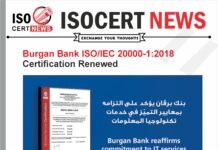AKIPRESS.COM – The leathercrafts made by Mongolian nomads are well-known for being robust, stylish, and practical.
Nevertheless, tonnes of raw animal hides are discarded in Mongolia. Since processing leather is challenging and dangerous, business owners opt for cashmere, which is easier to obtain and more profitable.
EBRD Press Service says, “Ninety per cent of seven million semi-processed hides that Mongolia produces each year are sold at discounted rates to Italy, Spain, and Turkiye. The extra seven to eight million hides are added to the nation’s expanding landfills.”
Enkhnasan Tumen-Ulzii, a Mongolian expert in leather, aimed to lower the quantity of animal hides. In 2016, she launched her company, Maris, offering eco-friendliness and sustainable technology. Many of the hazardous chemicals required for leather processing were eliminated when they adopted an innovative method called “vegetable tanning processing.”
In 2019, the Maris brand, which had previously specialised in leather handbags, quickly changed its name to Maris Trade LLC. But as the business expanded, it also needed to enhance its marketing, sales, production, and product development. The company’s leadership realised that they were heading into a pivotal period and decided to seek outside help by enrolling in the EBRD’s highly competitive bundled consultancy programme.
After carefully examining Maris’s operations, this business consulting service got right to work implementing the globally acclaimed ISO 9001:2015 quality management system.
By revamping and enhancing its production, Maris increased its sales with significant reforms backed by the consulting service.
They significantly reduced waste by implementing an early detection system for faulty animal hide and using smaller pieces of useable material to create new accessories like mousepads, card holders, and other utilities. The business recovered, and young people in Mongolia are now hip to buying these stylish and long-lasting leather accessories.
Enkhnasan said, “I started Maris because I wished to reduce the leather waste in my community. With the help of the advisory service, we can now repurpose large amounts of raw leather that would previously have become waste.”
Maris’s sales have increased by almost 70% from 2021 to this year. The company is now able to export its goods abroad. It has even made a prototype rugby ball for its new Japanese partners thanks to the successful implementation of the management system. The current plan is to ship test products to nations in Europe.
Source Link: https://akipress.com/news:737459:EBRD_provides_support_for_sustainable_leather_production_in_Mongolia/










